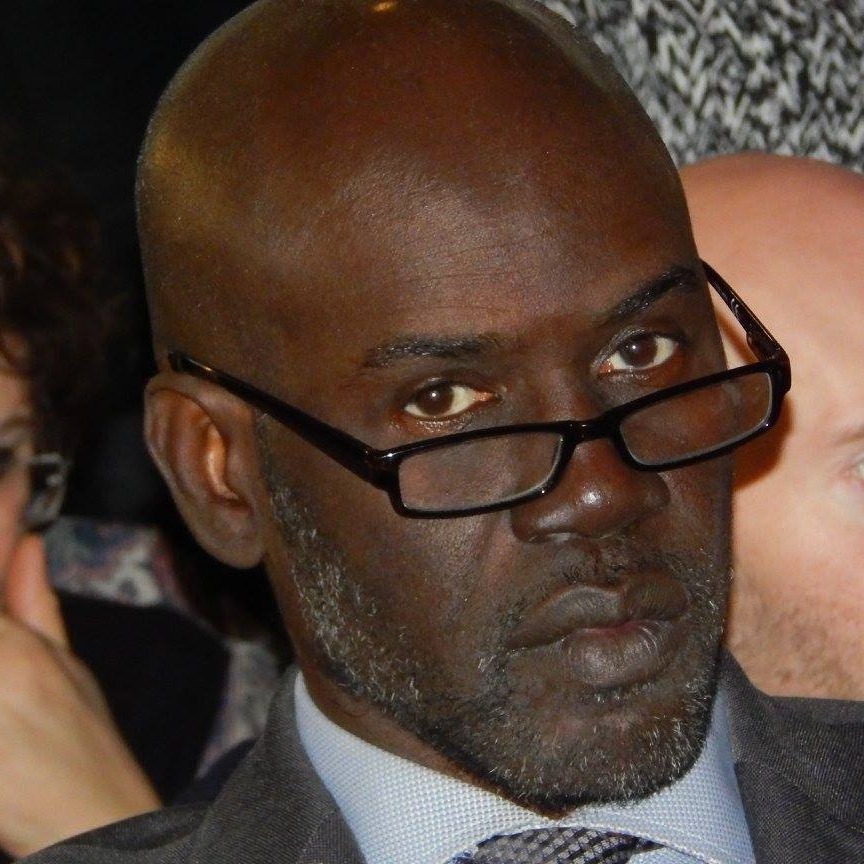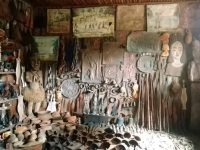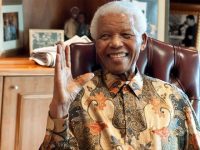Focus on Africa decided to interview Cyrie Sendashonga, the widow of the late Rwandan Minister…

What is happening in Senegal: the opinion of Aly Baba Faye, sociologist and migration expert
Senegal, a country that has enjoyed strong stability for years, is currently in crisis. Protests, repression, hundreds of injuries, and many deaths have filled the pages of national and international media in recent days. But what is happening?
Less than a year away from the Presidential elections scheduled for February 2024, the face-off between Macky Sall, the current President, and Ousmane Sonko, the leader of the opposition party Pastef, seems to dominate the analysis scene: condemnations and accusations, the unconstitutionality of Macky Sall’s third term, young people demanding more and more change, and cities descending into chaos.
To have a more accurate analysis of the events affecting the country, we have chosen to interview Dr. Aly Baba Faye, a sociologist and migration expert who has been in Italy for almost forty years.
Let’s start with the current situation. What lies behind what is happening these days in Senegal?
What has been happening in Senegal for the past couple of years goes beyond the contingency of a pre-election season. I believe there is something much deeper related to the political context and the structural determinants of Senegalese society.
What do you mean?
In my view, there is a set of social and cultural factors that weigh differently on the political dispute. Certainly, what we have witnessed in this dispute is the manifest side, what I would call the most debated aspect. And that is what has drawn attention from the media and the global public opinion towards Senegal. It should also be noted that the attention and interest in the Senegalese case mirror the reputation that the “Teranga” country has had. It has always been seen as an “African exception,” a “showcase of democracy,” a united nation that can rely on a functioning state and institutions. However, today it seems to be the subject of debate about a stability that risks collapsing.
Precisely for this reason, the protests and everything that has hit the country in recent days have emerged as news. The intense political tension with its accompaniment of violence, abuses, destruction, and deaths goes beyond a crisis stirred up during a pre-election season. Tensions have always been part of political effervescence and democratic vitality, but there is much more!
For example? What is different compared to the past?
Now we are facing an issue, perhaps unprecedented, that exposes the wear and tear of a country that has been considered a virtuous model in the African context for a long time. The long wave of an overly politicized society, from the colonial period to the advent of the Republic, presents the bill of history because Senegal is a predominantly political society. It is a country where political exercise is a test of democracy and a guarantee of freedom. What, in my opinion, has been the strength of the country’s system is the construction of a nation, a common desire to live together. There has been a process that has given strength and balance to statehood. We can talk about a Republic, but it is something more significant than a range of norms, codes, or institutions. There is a kind of covenant of coexistence that comes from a millennia-long history and represents the material constitution of the country.
Is it the Senegalese model?
Yes, the so-called Senegalese model that has deep roots in the country’s history, which has so far been distinguished by the solidity of the state and social stability. In short, there is a sociology of place and logos that has made it possible to establish a model that has been considered virtuous and is now at risk What is happening in Senegal: the opinion of Aly Baba Faye, sociologist and migration expert
June 13, 2023, Valentina Geraci
Senegal, a country that has enjoyed strong stability for years, is currently in crisis. Protests, repression, hundreds of injured and many deaths have filled the pages of national and international press in recent days. But what is happening?
Less than a year away from the Presidential elections, scheduled for February 2024, the face-off between Macky Sall, the current President, and Ousmane Sonko, leader of the opposition party Pastef, seems to dominate the analytical scene: condemnations and accusations, unconstitutionality of Macky Sall’s third term, youth demanding more and more change, and cities sinking into chaos.
To get a more accurate analysis of the events affecting the country, we have chosen to interview Dr. Aly Baba Faye, a sociologist and migration expert who has been in Italy for almost forty years.
Let’s start with the current situation. What lies behind what is happening these days in Senegal?
What has been happening in Senegal for the past couple of years goes beyond the contingency of a pre-election season. I believe there is something much deeper that pertains to the political context and the structural determinants of Senegalese society.
Could you elaborate?
In my view, there is a set of factors (social and cultural) that weigh differently on the political dispute. Certainly, what we have seen in this dispute is the manifest side, what I would call the most debated one. And that is what has made Senegal the focus of attention from the media and the global public opinion. It should also be noted that the attention and interest in the Senegalese case mirror the reputation that the Teranga country has had. It has always been seen as an “African exception,” a “showcase of democracy,” a united nation that can rely on a functioning state and institutions. Today, it seems to be debating a stability that risks collapsing.
Precisely for this reason, the protests and everything that has struck the country in recent days have emerged as news. The strong political tension with its accompaniment of violence, abuses, destruction, and deaths goes far beyond a crisis stirred up in a pre-election season. Certainly, tensions have always been part of political effervescence and democratic vitality, but there is much more!
For example? What is different compared to the past?
Now we are facing a possibly unprecedented issue that exposes the wear and tear of a country that has long been considered a virtuous model in the African context. The long wave of a hyper-politicized society, from the colonial period to the advent of the Republic, presents the bill of history because Senegal is a predominantly political society. It is a country where political exercise is a test of democracy and a guarantee of freedom. What has been the strength of the country’s system is the construction of a nation, a common desire to live together. There has been a process that has given strength and balance to statehood. We can talk about a Republic, but it is something more significant than a range of norms, codes, or institutions. There is a sort of covenant of coexistence that comes from a millenary history and represents the material constitution of the country.
Is it the Senegalese model?
Yes, the so-called Senegalese model, which has deep roots in the country’s history, has so far been distinguished by the solidity of the state and social stability. In short, there is a sociology of place and logos that has made the consolidation of a model that has been considered virtuous possible and is at risk of being destroyed. Just think about the expressions coined from time to time, such as “the Senegalese exception,” “the Senegalese miracle,” or “the Senegalese success story.” These expressions highlight the uniqueness of Senegal’s political stability and peaceful coexistence.
However, in recent years, cracks have started to appear in this model. One of the main factors is the growing discontent among the youth. Despite Senegal’s economic growth and relative political stability, many young people continue to face high unemployment rates, limited access to quality education, and a lack of opportunities for upward mobility. This frustration among the youth has been brewing for some time and has now reached a boiling point.
Another significant factor is the concentration of power and wealth within a small political elite. This has led to a sense of marginalization and exclusion among certain segments of the population, particularly those living in rural areas and disadvantaged urban neighborhoods. The perception of corruption and nepotism within the government has further eroded trust and confidence in the political system.
Moreover, the handling of the COVID-19 pandemic has also exacerbated existing grievances. The measures taken to curb the spread of the virus, such as lockdowns and restrictions, have had a severe impact on the informal economy, which is a significant source of income for many Senegalese people. This has resulted in increased poverty and economic hardship, further fueling social unrest.
In the context of the upcoming presidential elections, these underlying issues have come to the forefront. The opposition party, led by Ousmane Sonko, has been able to tap into the frustrations and aspirations of the youth, promising change and a break from the status quo. On the other hand, President Macky Sall’s bid for a third term has sparked debates over the constitutionality of his candidacy, raising concerns about democratic principles and the consolidation of power.
All these factors combined have created a perfect storm of social and political tensions in Senegal. The recent protests and violence are a manifestation of the deep-rooted grievances and a call for a more inclusive and equitable society.
It is crucial for the government and the political leadership to address these issues seriously and engage in meaningful dialogue with all stakeholders. This includes implementing policies that address youth unemployment, promoting transparency and accountability in governance, and ensuring equal access to opportunities for all Senegalese citizens. Only through genuine efforts to address these structural challenges can Senegal regain its stability and live up to the ideals of its revered Senegalese model.




